STOCHASTIC NETWORKS CONFERENCE
UC San Diego, June 20-24, 2016
PLENARY SPEAKERS
 Emmanuel Abbe (Princeton),
Emmanuel Abbe
earned his Ph.D. degree from
the Department of Electrical Engineering and Computer Science at the Massachusetts Institute of Technology, and his M.S. degree from the Mathematics Department at the Ecole Polytechnique Federale de Lausanne.
He is currently an Assistant Professor jointly in the
Program in Applied and Computational Mathematics and in the Department of
Electrical Engineering at
Princeton University.
His research interests are in
statistical networks, information theory, learning theory, coding theory, and discrete probability.
He is the recipient of the CVCI Prize in Mathematics at EPFL,
the Foundation Latsis International Prize, the Bell Labs Prize, the NSF CAREER Award and the Google Faculty Research Award.
Emmanuel Abbe (Princeton),
Emmanuel Abbe
earned his Ph.D. degree from
the Department of Electrical Engineering and Computer Science at the Massachusetts Institute of Technology, and his M.S. degree from the Mathematics Department at the Ecole Polytechnique Federale de Lausanne.
He is currently an Assistant Professor jointly in the
Program in Applied and Computational Mathematics and in the Department of
Electrical Engineering at
Princeton University.
His research interests are in
statistical networks, information theory, learning theory, coding theory, and discrete probability.
He is the recipient of the CVCI Prize in Mathematics at EPFL,
the Foundation Latsis International Prize, the Bell Labs Prize, the NSF CAREER Award and the Google Faculty Research Award.
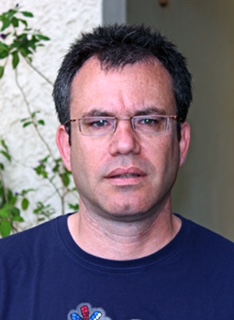 Rami Atar (Technion),
Rami Atar received the D.Sc. degree in Electrical Engineering from the Technion in 1997.
After postdoctoral visits to the Division of Applied Mathematics at Brown
and to the Fields Institute, he joined the Faculty of Electrical Engineering,
Technion, in 1999, where he is now a Professor. He had visiting
appointments with the University of Washington and the
University of North Carolina.
His research focuses on stochastic processes, including asymptotic analysis
of queueing models in diffusion and large deviation regimes, PDE techniques in
stochastic control and differential games, filtering and estimation.
Rami Atar is a fellow of the Institute of Mathematical Statistics.
Rami Atar (Technion),
Rami Atar received the D.Sc. degree in Electrical Engineering from the Technion in 1997.
After postdoctoral visits to the Division of Applied Mathematics at Brown
and to the Fields Institute, he joined the Faculty of Electrical Engineering,
Technion, in 1999, where he is now a Professor. He had visiting
appointments with the University of Washington and the
University of North Carolina.
His research focuses on stochastic processes, including asymptotic analysis
of queueing models in diffusion and large deviation regimes, PDE techniques in
stochastic control and differential games, filtering and estimation.
Rami Atar is a fellow of the Institute of Mathematical Statistics.
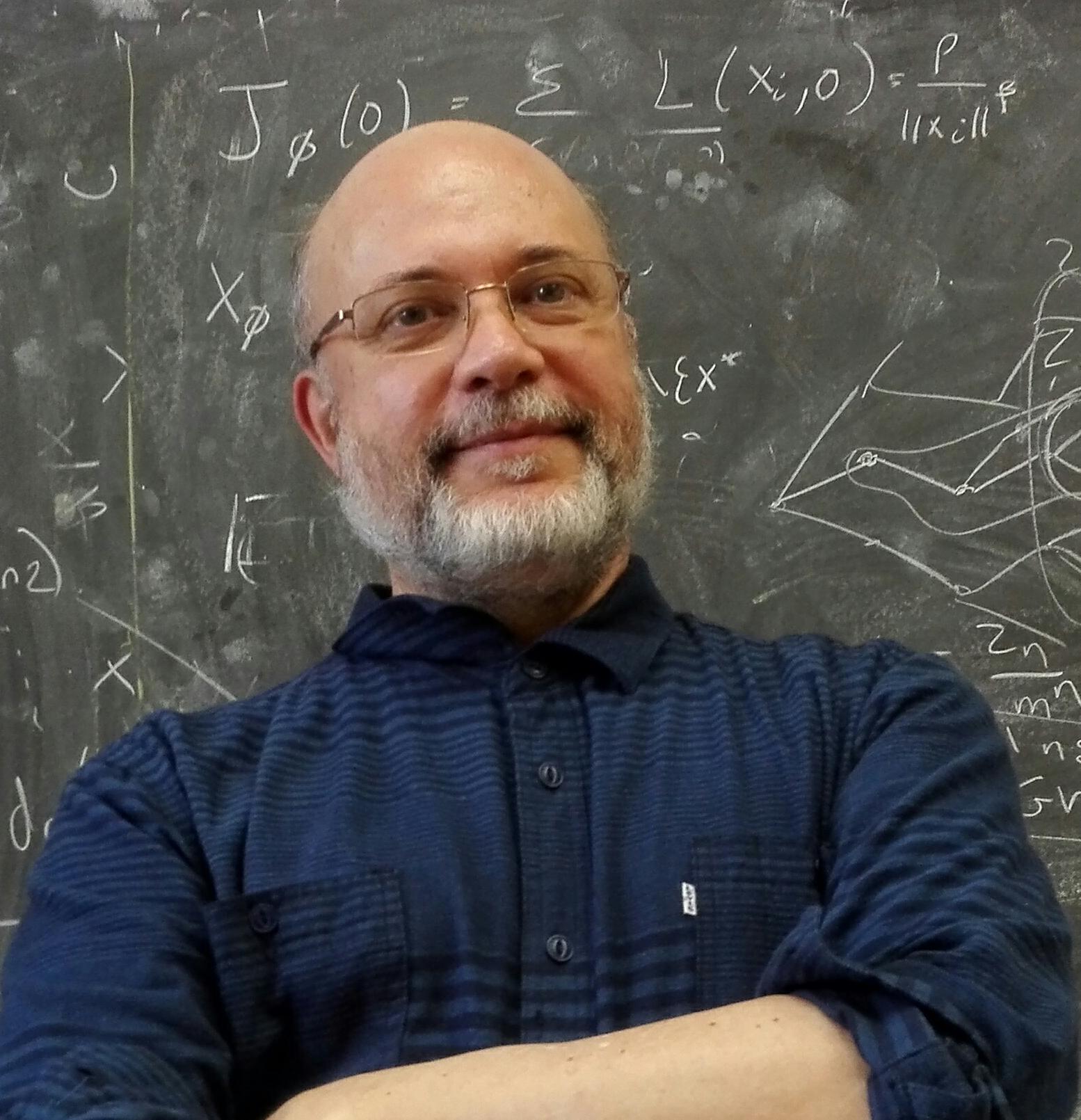 Francois Baccelli (U. Texas, Austin),
Francois Baccelli is Simons Math+X Chair in Mathematics and ECE at UT
Austin. His research directions are at the interface between Applied
Mathematics (probability theory, stochastic geometry, dynamical systems)
and Communications (network science, information theory, wireless
networks). He is co-author of research monographs on point processes and
queues (with P. Bremaud); max plus algebras and network dynamics (with G.
Cohen, G. Olsder and J.P. Quadrat); stationary queuing networks (with P.
Bremaud); stochastic geometry and wireless networks (with B.
Blaszczyszyn). Before joining UT Austin, he held positions at INRIA, Ecole
Normale Superieure and Ecole Polytechnique. He received the France Telecom
Prize of the French Academy of Sciences in 2002 and the ACM Sigmetrics
Achievement Award in 2014. He is a co-recipient of the 2014 Stephen O.
Rice Prize and of the Leonard G. Abraham Prize Awards of the IEEE
Communications Theory Society. He is a member of the French Academy of
Sciences and part time researcher at INRIA.
Francois Baccelli (U. Texas, Austin),
Francois Baccelli is Simons Math+X Chair in Mathematics and ECE at UT
Austin. His research directions are at the interface between Applied
Mathematics (probability theory, stochastic geometry, dynamical systems)
and Communications (network science, information theory, wireless
networks). He is co-author of research monographs on point processes and
queues (with P. Bremaud); max plus algebras and network dynamics (with G.
Cohen, G. Olsder and J.P. Quadrat); stationary queuing networks (with P.
Bremaud); stochastic geometry and wireless networks (with B.
Blaszczyszyn). Before joining UT Austin, he held positions at INRIA, Ecole
Normale Superieure and Ecole Polytechnique. He received the France Telecom
Prize of the French Academy of Sciences in 2002 and the ACM Sigmetrics
Achievement Award in 2014. He is a co-recipient of the 2014 Stephen O.
Rice Prize and of the Leonard G. Abraham Prize Awards of the IEEE
Communications Theory Society. He is a member of the French Academy of
Sciences and part time researcher at INRIA.
 Maury Bramson (U. of Minnesota),
Maury Bramson is a
Professor of Mathematics at the University of Minnesota.
His research in probability theory includes work on
branching Brownian motion and the KPP partial differential equation, interacting particle systems, and queueing networks.
In the latter area,
he is especially known for his work on stability and instability of queueing networks
(see his 2008 monograph monograph on stability of queueing networks),
as well as for developing the use of fluid models to prove a key dimension reduction result for diffusion approximations called state space collapse.
Maury Bramson was an invited speaker at the International Congress of Mathematicians in 1998, an Institute of Mathematical Statistics Medallion Lecturer in 2002 and a London Mathematical Society Lecturer in 2010. He is a Fellow of the Institute of
Mathematical Stastistics and of the American Mathematical Society.
Maury Bramson (U. of Minnesota),
Maury Bramson is a
Professor of Mathematics at the University of Minnesota.
His research in probability theory includes work on
branching Brownian motion and the KPP partial differential equation, interacting particle systems, and queueing networks.
In the latter area,
he is especially known for his work on stability and instability of queueing networks
(see his 2008 monograph monograph on stability of queueing networks),
as well as for developing the use of fluid models to prove a key dimension reduction result for diffusion approximations called state space collapse.
Maury Bramson was an invited speaker at the International Congress of Mathematicians in 1998, an Institute of Mathematical Statistics Medallion Lecturer in 2002 and a London Mathematical Society Lecturer in 2010. He is a Fellow of the Institute of
Mathematical Stastistics and of the American Mathematical Society.
 Guy Bresler (MIT),
Guy Bresler is the Bonnie and Marty (1964)
Tenenbaum Career Development
Assistant Professor in the Department of Electrical Engineering and Computer Science at MIT, and a member of the Laboratory for Information and Decision
Systems (LIDS) and the
Center for Statistics, which are part of the
Institute for Data, Systems, and Society (IDSS) at MIT.
He received his B.S. in electrical and computer engineering and M.S. in mathematics from the University of Illinois at Urbana-Champaign, and PhD in electrical engineering and computer science from the University of California, Berkeley. His research interests are at the interface of statistics, computation, and information theory.
Guy Bresler (MIT),
Guy Bresler is the Bonnie and Marty (1964)
Tenenbaum Career Development
Assistant Professor in the Department of Electrical Engineering and Computer Science at MIT, and a member of the Laboratory for Information and Decision
Systems (LIDS) and the
Center for Statistics, which are part of the
Institute for Data, Systems, and Society (IDSS) at MIT.
He received his B.S. in electrical and computer engineering and M.S. in mathematics from the University of Illinois at Urbana-Champaign, and PhD in electrical engineering and computer science from the University of California, Berkeley. His research interests are at the interface of statistics, computation, and information theory.
 Fan Chung Graham (UC San Diego),
Fan Chung Graham is a Distinguished Professor of Mathematics and
Computer Science and Engineering at the University of California, San Diego, where
she holds the Paul Erdos Chair in Combinatorics.
Her research interests are primarily in graph theory,
combinatorics, and algorithmic analysis.
She is an expert in spectral graph theory, extremal graphs,
the theory of quasi-randomness and the probabilistic analysis of complex networks. Recently her work has included local graph algorithms for complex networks and random walks based ranking algorithms.
She was awarded the Allendoerfer Award by Mathematical Association of America in 1990.
In 1994, she gave an invited talk at the International Congress of Mathematicians (ICM) in Zurich, and in 1998, she was elected as a fellow of the American Academy of Arts and Sciences.
She is a fellow of the American Mathematical Society and is a SIAM fellow.
Fan Chung Graham (UC San Diego),
Fan Chung Graham is a Distinguished Professor of Mathematics and
Computer Science and Engineering at the University of California, San Diego, where
she holds the Paul Erdos Chair in Combinatorics.
Her research interests are primarily in graph theory,
combinatorics, and algorithmic analysis.
She is an expert in spectral graph theory, extremal graphs,
the theory of quasi-randomness and the probabilistic analysis of complex networks. Recently her work has included local graph algorithms for complex networks and random walks based ranking algorithms.
She was awarded the Allendoerfer Award by Mathematical Association of America in 1990.
In 1994, she gave an invited talk at the International Congress of Mathematicians (ICM) in Zurich, and in 1998, she was elected as a fellow of the American Academy of Arts and Sciences.
She is a fellow of the American Mathematical Society and is a SIAM fellow.
 Jim Dai (Cornell),
Jim Dai is a professor in the School of Operations Research and Information Engineering (ORIE) of Cornell University. Prior to joining Cornell,
he held the Chandler Family Chair of Industrial and Systems Engineering at Georgia Institute of Technology, where he was a faculty member from 1990 to 2012.
He is a Special Term Professor at Tsinghua University
and a past Visiting Professor in Decision Sciences at National University of Singapore. Jim Dai earned his Ph.D. from Stanford University in 1990.
His research is concerned with the study of
stochastic models arising from communications, manufacturing, and service systems that include data switches, semiconductor wafer fabrication lines, call centers, and healthcare delivery systems.
Jim Dai is a fellow of the Institute of Mathematical Statistics and a fellow of Institute for Operations Research and the Management Sciences (INFORMS).
His research awards include an
NSF Young Investigator Award from the NSF in 1994,
the Best Publication Award in 1997 and The Erlang Prize in 1998, both from the Applied Probability Society of INFORMS, and an IBM Faculty Award in 2003.
He delivered the Markov Lecture at the
INFORMS National Meeting in October 2012.
He is currently the Editor-in-Chief for Mathematics of Operations
Research.
Jim Dai (Cornell),
Jim Dai is a professor in the School of Operations Research and Information Engineering (ORIE) of Cornell University. Prior to joining Cornell,
he held the Chandler Family Chair of Industrial and Systems Engineering at Georgia Institute of Technology, where he was a faculty member from 1990 to 2012.
He is a Special Term Professor at Tsinghua University
and a past Visiting Professor in Decision Sciences at National University of Singapore. Jim Dai earned his Ph.D. from Stanford University in 1990.
His research is concerned with the study of
stochastic models arising from communications, manufacturing, and service systems that include data switches, semiconductor wafer fabrication lines, call centers, and healthcare delivery systems.
Jim Dai is a fellow of the Institute of Mathematical Statistics and a fellow of Institute for Operations Research and the Management Sciences (INFORMS).
His research awards include an
NSF Young Investigator Award from the NSF in 1994,
the Best Publication Award in 1997 and The Erlang Prize in 1998, both from the Applied Probability Society of INFORMS, and an IBM Faculty Award in 2003.
He delivered the Markov Lecture at the
INFORMS National Meeting in October 2012.
He is currently the Editor-in-Chief for Mathematics of Operations
Research.
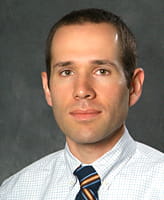 Itai Gurvich (Northwestern),
Itai Gurvich earned his Ph.D. from the Decision, Risk and Operations Department of Columbia University's Graduate School of Business in 2008.
He then
joined the faculty at the Kellogg School of Management, where he is
currently an Associate Professor.
His research focuses on the analysis and optimization of service systems, with a focus on the design of processing networks.
In 2014 his joint place "Hospital Readmissions Reduction Program: A Financial and Operational Analysis" was awarded the
POMS College of Healthcare Operations Management Best Paper Award.
Itai Gurvich (Northwestern),
Itai Gurvich earned his Ph.D. from the Decision, Risk and Operations Department of Columbia University's Graduate School of Business in 2008.
He then
joined the faculty at the Kellogg School of Management, where he is
currently an Associate Professor.
His research focuses on the analysis and optimization of service systems, with a focus on the design of processing networks.
In 2014 his joint place "Hospital Readmissions Reduction Program: A Financial and Operational Analysis" was awarded the
POMS College of Healthcare Operations Management Best Paper Award.
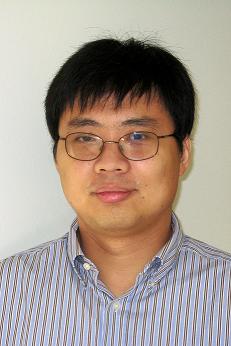 Weining Kang (Univ. Maryland, Baltimore County),
Weining Kang is an Associate Professor at the Department of Mathematics and Statistics, the University of Maryland, Baltimore County. He received his Ph.D. in 2005 from the University of California, San Diego under the supervision of Professor Ruth Williams and performed post-doctoral research at Carnegie Mellon University between 2005 and 2009 under the mentoring of Professor Kavita Ramanan before joining UMBC. His research interests are in probability theory, stochastic processes, and their applications.
Weining Kang (Univ. Maryland, Baltimore County),
Weining Kang is an Associate Professor at the Department of Mathematics and Statistics, the University of Maryland, Baltimore County. He received his Ph.D. in 2005 from the University of California, San Diego under the supervision of Professor Ruth Williams and performed post-doctoral research at Carnegie Mellon University between 2005 and 2009 under the mentoring of Professor Kavita Ramanan before joining UMBC. His research interests are in probability theory, stochastic processes, and their applications.
 Tom Kurtz (U. Wisconsin),
Thomas G. Kurtz received his PhD from Stanford University in 1967 then
moving to the University of Wisconsin-Madison where he was a member of the
Mathematics and Statistics Departments until his retirement in 2008.
At the time of his retirement he was Paul Levy Professor of Mathematics and Statistics. He served as chair of the Department of Mathematics for three years and as Director of the Center for the Mathematical Sciences for six. Professor Kurtz is a leading expert on
stochastic processes, in particular Markov processes, and his research has emphasized results on convergence and approximation. He is a former president of the Institute of Mathematical Statistics and a former editor of the Annals of Probability. He is a Fellow of the Institute of Mathematical Statistics and of the American Academy of Arts and Sciences.
Tom Kurtz (U. Wisconsin),
Thomas G. Kurtz received his PhD from Stanford University in 1967 then
moving to the University of Wisconsin-Madison where he was a member of the
Mathematics and Statistics Departments until his retirement in 2008.
At the time of his retirement he was Paul Levy Professor of Mathematics and Statistics. He served as chair of the Department of Mathematics for three years and as Director of the Center for the Mathematical Sciences for six. Professor Kurtz is a leading expert on
stochastic processes, in particular Markov processes, and his research has emphasized results on convergence and approximation. He is a former president of the Institute of Mathematical Statistics and a former editor of the Annals of Probability. He is a Fellow of the Institute of Mathematical Statistics and of the American Academy of Arts and Sciences.
 Mark Lewis (Cornell),
Professor Lewis received his undergraduate degree in Mathematics and Political Science from Eckerd College in 1992, his Master's degree in Theoretical Statistics from Florida State University in 1995, and a Ph.D. in Industrial Engineering from the Georgia Institute of Technology in 1998. After receiving his doctorate, Lewis spent a year at the University of British Columbia as a postdoctoral fellow in the Center for Operations Excellence. He joined Cornell as an Associate Professor in 2005 after teaching Industrial and Operations Engineering at the University of Michigan. His research interests include dynamic decision-making under uncertainty as applied to queues, inventory, and transportation networks. He is the recipient of the Presidential Early Career Award for Scientists and Engineers and has a long history of dedication to diversity efforts.
Mark Lewis (Cornell),
Professor Lewis received his undergraduate degree in Mathematics and Political Science from Eckerd College in 1992, his Master's degree in Theoretical Statistics from Florida State University in 1995, and a Ph.D. in Industrial Engineering from the Georgia Institute of Technology in 1998. After receiving his doctorate, Lewis spent a year at the University of British Columbia as a postdoctoral fellow in the Center for Operations Excellence. He joined Cornell as an Associate Professor in 2005 after teaching Industrial and Operations Engineering at the University of Michigan. His research interests include dynamic decision-making under uncertainty as applied to queues, inventory, and transportation networks. He is the recipient of the Presidential Early Career Award for Scientists and Engineers and has a long history of dedication to diversity efforts.
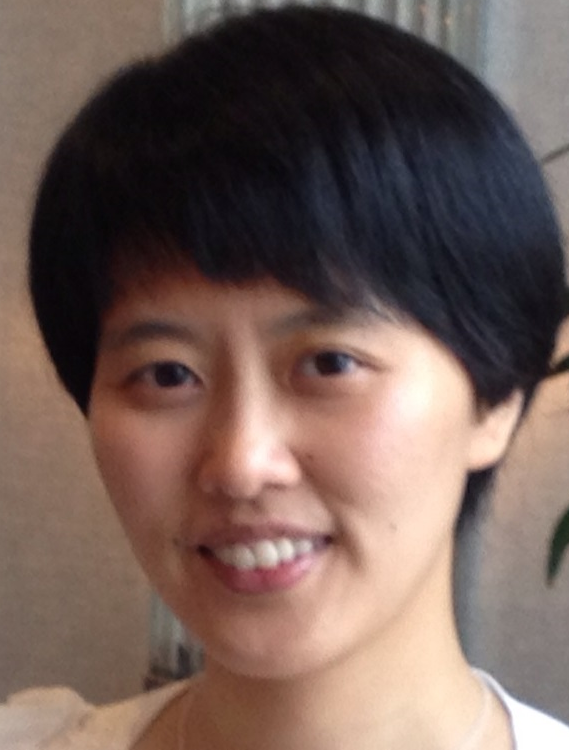 Yi Lu (U. Illinois, Urbana-Champaign),
Yi Lu is an Assistant Professor in the ECE department at the University of Illinois at Urbana-Champaign.
She is a recipient of the Terman Engineering Scholastic Award, Stanford Graduate Fellowship, the Sigmetrics Best paper award in 2008, the Performance Best paper award in 2011, an NSF Career award in 2012, the Center of Advanced Study fellowship in 2014. Her work focuses on developing scalable architectures and algorithms for large networking systems such as modern web services with dynamic content, data-centric computing and social networks. Her work spans fundamental analysis and algorithm implementation, and emphasizes the design of low-complexity easy-to-implement algorithms.
Yi Lu (U. Illinois, Urbana-Champaign),
Yi Lu is an Assistant Professor in the ECE department at the University of Illinois at Urbana-Champaign.
She is a recipient of the Terman Engineering Scholastic Award, Stanford Graduate Fellowship, the Sigmetrics Best paper award in 2008, the Performance Best paper award in 2011, an NSF Career award in 2012, the Center of Advanced Study fellowship in 2014. Her work focuses on developing scalable architectures and algorithms for large networking systems such as modern web services with dynamic content, data-centric computing and social networks. Her work spans fundamental analysis and algorithm implementation, and emphasizes the design of low-complexity easy-to-implement algorithms.
 Siva Maguluri (IBM T. J. Watson Research Center),
Siva Theja Maguluri is a Research Staff Member in the Mathematical Sciences
Department at IBM T. J. Watson Research Center.
He obtained his PhD in 2014 from the
University of Illinois at Urbana Champaign in Electrical and Computer Engineering, where he worked on resource allocation algorithms for cloud computing and wireless networks.
Earlier, he received an MS in ECE and an MS in Applied Math from UIUC and a B.Tech in Electrical Engineering from IIT Madras. His research interests include Stochastic Processes, Optimization, Cloud Computing, Data Centers, Resource Allocation and Scheduling Algorithms, Networks, and Game Theory. He will start next spring as an Assistant Professor in the School of Industrial and Systems Engineering at Georgia Tech.
Siva Maguluri (IBM T. J. Watson Research Center),
Siva Theja Maguluri is a Research Staff Member in the Mathematical Sciences
Department at IBM T. J. Watson Research Center.
He obtained his PhD in 2014 from the
University of Illinois at Urbana Champaign in Electrical and Computer Engineering, where he worked on resource allocation algorithms for cloud computing and wireless networks.
Earlier, he received an MS in ECE and an MS in Applied Math from UIUC and a B.Tech in Electrical Engineering from IIT Madras. His research interests include Stochastic Processes, Optimization, Cloud Computing, Data Centers, Resource Allocation and Scheduling Algorithms, Networks, and Game Theory. He will start next spring as an Assistant Professor in the School of Industrial and Systems Engineering at Georgia Tech.
 Laurent Massoulie (Microsoft Research-INRIA),
Laurent Massoulie graduated from the Ecole Polytechnique, Palaiseau, France, in 1991, and received the Ph.D. degree in automatic control from Paris Sud University, Orsay, France, in 1995. He is a researcher at Inria where he leads the Microsoft Research-Inria Joint Centre.
His research focuses on probabilistic modeling and design of distributed algorithms for "large networks," including P2P and social networks.
He has held positions with France Telecom R&D from 1995 to 1999, Microsoft Research, Cambridge, U.K., from 1999 to 2006, and Technicolor, Paris, France, from 2006 to 2012. Dr. Massoulie has served as Associate Editor of Queueing Systems:
Theory and Applications from 2000 to 2006, the IEEE/ACM TRANSACTIONS ON NETWORKING in 2008, and the Stochastic Systems Journal from 2011 to the present. He has coauthored the Best Paper Award-winning papers of IEEE INFOCOM 1999, ACM SIGMETRICS 2005, and ACM CoNEXT 2007.
Laurent Massoulie (Microsoft Research-INRIA),
Laurent Massoulie graduated from the Ecole Polytechnique, Palaiseau, France, in 1991, and received the Ph.D. degree in automatic control from Paris Sud University, Orsay, France, in 1995. He is a researcher at Inria where he leads the Microsoft Research-Inria Joint Centre.
His research focuses on probabilistic modeling and design of distributed algorithms for "large networks," including P2P and social networks.
He has held positions with France Telecom R&D from 1995 to 1999, Microsoft Research, Cambridge, U.K., from 1999 to 2006, and Technicolor, Paris, France, from 2006 to 2012. Dr. Massoulie has served as Associate Editor of Queueing Systems:
Theory and Applications from 2000 to 2006, the IEEE/ACM TRANSACTIONS ON NETWORKING in 2008, and the Stochastic Systems Journal from 2011 to the present. He has coauthored the Best Paper Award-winning papers of IEEE INFOCOM 1999, ACM SIGMETRICS 2005, and ACM CoNEXT 2007.
 Angelia Nedich (U. Illinois, Urbana-Champaign),
Angelia Nedich is an Associate Professor in the Department of Industrial and Enterprise Systems Engineering at the University of Illinois at Urbana-Champaign, where she also holds the honorary title of
Donald Biggar Willett Scholar. She holds Ph.D.s in Electrical Engineering from MIT and
in Computational Mathematics from Moscow State University.
Her research interests include
distributed and large-scale optimization,
convex and nonsmooth optimization,
game theory and variational inequalities,
duality and convexity theory,
stochastic approximation,
dynamic systems,
with applications in communication networks, signal processing, machine learning, and sensor networks.
She is the recipient of an NSF Career Award (2007),
the best theoretical paper award of the Winter Simulation Conference in
2013, and
the best paper award
of WiOpt in 2015.
Angelia Nedich (U. Illinois, Urbana-Champaign),
Angelia Nedich is an Associate Professor in the Department of Industrial and Enterprise Systems Engineering at the University of Illinois at Urbana-Champaign, where she also holds the honorary title of
Donald Biggar Willett Scholar. She holds Ph.D.s in Electrical Engineering from MIT and
in Computational Mathematics from Moscow State University.
Her research interests include
distributed and large-scale optimization,
convex and nonsmooth optimization,
game theory and variational inequalities,
duality and convexity theory,
stochastic approximation,
dynamic systems,
with applications in communication networks, signal processing, machine learning, and sensor networks.
She is the recipient of an NSF Career Award (2007),
the best theoretical paper award of the Winter Simulation Conference in
2013, and
the best paper award
of WiOpt in 2015.
 Kavita Ramanan (Brown U.),
Kavita Ramanan earned her Ph.D. from the Division of Applied Mathematics at Brown University in 1998.
After a post-doctoral position at the Technion in Haifa, Israel, she joined the Mathematical Sciences Center of Bell Laboratories, Lucent, as a Member of Technical Staff. In 2003, she returned to academia and was an Associate Professor and Professor at the Department of Mathematical Sciences at Carnegie Mellon University (CMU), Pittsburgh from 2003-2009. In 2010, she moved to the Division of Applied Mathematics at Brown University where she is currently a Professor of Applied Mathematics.
Professor Ramanan's research is on
probability theory, stochastic processes and their applications. She is especially interested in
reflected or constrained processes,
large deviations,
phase transitions and Gibbs measures,
measure-valued processes,
and applications to stochastic networks.
Her research has been recognized with the
award of the Erlang prize by the Applied Probability Society of INFORMS in 2006. She is also a fellow
of the Institute of Mathematical Statistics.
Kavita Ramanan (Brown U.),
Kavita Ramanan earned her Ph.D. from the Division of Applied Mathematics at Brown University in 1998.
After a post-doctoral position at the Technion in Haifa, Israel, she joined the Mathematical Sciences Center of Bell Laboratories, Lucent, as a Member of Technical Staff. In 2003, she returned to academia and was an Associate Professor and Professor at the Department of Mathematical Sciences at Carnegie Mellon University (CMU), Pittsburgh from 2003-2009. In 2010, she moved to the Division of Applied Mathematics at Brown University where she is currently a Professor of Applied Mathematics.
Professor Ramanan's research is on
probability theory, stochastic processes and their applications. She is especially interested in
reflected or constrained processes,
large deviations,
phase transitions and Gibbs measures,
measure-valued processes,
and applications to stochastic networks.
Her research has been recognized with the
award of the Erlang prize by the Applied Probability Society of INFORMS in 2006. She is also a fellow
of the Institute of Mathematical Statistics.
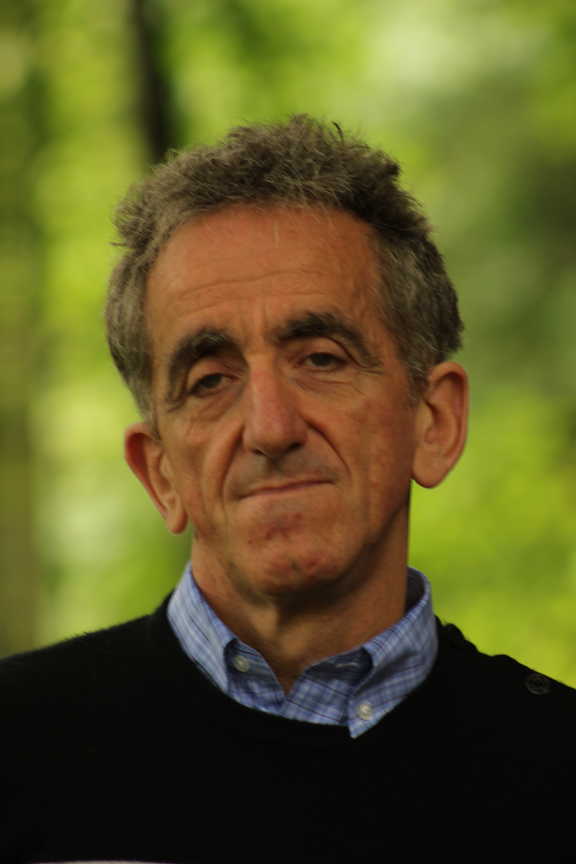 Philippe Robert (INRIA),
Philippe Robert is Research Director at INRIA. He received his PhD from the University of Paris Pierre et Marie Curie. His research interests include theoretical aspects of stochastic networks, random algorithms and scaling methods of Markov processes. Algorithmic aspects of communication networks and stochastic models of molecular biology are currently the main applications of his research. He is teaching at the University of Paris Pierre et Marie. He wrote a book "Stochastic Networks and Queues" in 2003 published by Springer-Verlag New-York. He is at the head of the Research Team "Communication Networks, Algorithms and Probability" at INRIA.
Philippe Robert (INRIA),
Philippe Robert is Research Director at INRIA. He received his PhD from the University of Paris Pierre et Marie Curie. His research interests include theoretical aspects of stochastic networks, random algorithms and scaling methods of Markov processes. Algorithmic aspects of communication networks and stochastic models of molecular biology are currently the main applications of his research. He is teaching at the University of Paris Pierre et Marie. He wrote a book "Stochastic Networks and Queues" in 2003 published by Springer-Verlag New-York. He is at the head of the Research Team "Communication Networks, Algorithms and Probability" at INRIA.
 Neil Walton (Manchester University),
Neil Walton studied his undergraduate,
masters and PhD in mathematics at the University of Cambridge. Following this he was a lecturer in mathematics at the University of Amsterdam. Since January 2016, he has been working as a senior lecturer at the School of Mathematics at the University of Manchester. He has been awarded best paper awards at the ACM Sigmetrics conference and is on the council of the Applied Probability Society. In his research, Neil always enjoys working on probability, networks and resource allocation.
Neil Walton (Manchester University),
Neil Walton studied his undergraduate,
masters and PhD in mathematics at the University of Cambridge. Following this he was a lecturer in mathematics at the University of Amsterdam. Since January 2016, he has been working as a senior lecturer at the School of Mathematics at the University of Manchester. He has been awarded best paper awards at the ACM Sigmetrics conference and is on the council of the Applied Probability Society. In his research, Neil always enjoys working on probability, networks and resource allocation.
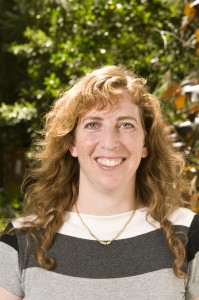 Galit Yom Tov (Technion)
Galit Yom-Tov is a lecturer in the IE&M faculty at the Technion - Israel Institute of Technology.
Her work focuses on the multi-disciplinary study of service systems.
She studies how data obtained from various service systems
(such as call-centers and hospitals) can teach us about customer and agent behavior in such systems,
and how queueing models can help in understanding the operational implications of such behavior.
She develops fluid and diffusion approximations for queueing networks, and studies their dynamics.
Her focus is mainly on healthcare systems (like hospitals) where her research can help
to optimize the allocation of resources such as beds, nurses, physicians, and hospital stay,
so that patients will receive adequate service while considering financial constraints.
Galit Yom Tov (Technion)
Galit Yom-Tov is a lecturer in the IE&M faculty at the Technion - Israel Institute of Technology.
Her work focuses on the multi-disciplinary study of service systems.
She studies how data obtained from various service systems
(such as call-centers and hospitals) can teach us about customer and agent behavior in such systems,
and how queueing models can help in understanding the operational implications of such behavior.
She develops fluid and diffusion approximations for queueing networks, and studies their dynamics.
Her focus is mainly on healthcare systems (like hospitals) where her research can help
to optimize the allocation of resources such as beds, nurses, physicians, and hospital stay,
so that patients will receive adequate service while considering financial constraints.
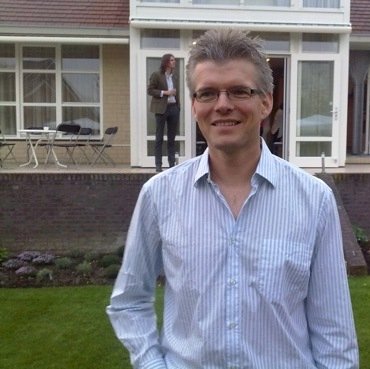 Bert Zwart (Centrum Wiskunde & Informatica).
Bert Zwart is a researcher at the Center for Mathematics and Computer
Science (CWI) in Amsterdam, where he leads the Stochastic group. He also
holds secondary professorial positions at Eindhoven University of Technology
and Georgia Tech.
His research is in applied probability, inspired by problems in computer, communication,
energy and service networks. Zwart is the 2008 recipient of the Erlang prize, an
IBM faculty award, VENI, VIDI and VICI awards from the Dutch Science
Foundation NWO, the 2015 Van Dantzig Prize, and 4 best papers
awards.
Zwart has been area editor of Stochastic Models for the journal Operations
Research since 2009, and serves on several additional journal boards and
program committees.
Bert Zwart (Centrum Wiskunde & Informatica).
Bert Zwart is a researcher at the Center for Mathematics and Computer
Science (CWI) in Amsterdam, where he leads the Stochastic group. He also
holds secondary professorial positions at Eindhoven University of Technology
and Georgia Tech.
His research is in applied probability, inspired by problems in computer, communication,
energy and service networks. Zwart is the 2008 recipient of the Erlang prize, an
IBM faculty award, VENI, VIDI and VICI awards from the Dutch Science
Foundation NWO, the 2015 Van Dantzig Prize, and 4 best papers
awards.
Zwart has been area editor of Stochastic Models for the journal Operations
Research since 2009, and serves on several additional journal boards and
program committees.
 Emmanuel Abbe (Princeton),
Emmanuel Abbe
earned his Ph.D. degree from
the Department of Electrical Engineering and Computer Science at the Massachusetts Institute of Technology, and his M.S. degree from the Mathematics Department at the Ecole Polytechnique Federale de Lausanne.
He is currently an Assistant Professor jointly in the
Program in Applied and Computational Mathematics and in the Department of
Electrical Engineering at
Princeton University.
His research interests are in
statistical networks, information theory, learning theory, coding theory, and discrete probability.
He is the recipient of the CVCI Prize in Mathematics at EPFL,
the Foundation Latsis International Prize, the Bell Labs Prize, the NSF CAREER Award and the Google Faculty Research Award.
Emmanuel Abbe (Princeton),
Emmanuel Abbe
earned his Ph.D. degree from
the Department of Electrical Engineering and Computer Science at the Massachusetts Institute of Technology, and his M.S. degree from the Mathematics Department at the Ecole Polytechnique Federale de Lausanne.
He is currently an Assistant Professor jointly in the
Program in Applied and Computational Mathematics and in the Department of
Electrical Engineering at
Princeton University.
His research interests are in
statistical networks, information theory, learning theory, coding theory, and discrete probability.
He is the recipient of the CVCI Prize in Mathematics at EPFL,
the Foundation Latsis International Prize, the Bell Labs Prize, the NSF CAREER Award and the Google Faculty Research Award.
 Francois Baccelli (U. Texas, Austin),
Francois Baccelli is Simons Math+X Chair in Mathematics and ECE at UT
Austin. His research directions are at the interface between Applied
Mathematics (probability theory, stochastic geometry, dynamical systems)
and Communications (network science, information theory, wireless
networks). He is co-author of research monographs on point processes and
queues (with P. Bremaud); max plus algebras and network dynamics (with G.
Cohen, G. Olsder and J.P. Quadrat); stationary queuing networks (with P.
Bremaud); stochastic geometry and wireless networks (with B.
Blaszczyszyn). Before joining UT Austin, he held positions at INRIA, Ecole
Normale Superieure and Ecole Polytechnique. He received the France Telecom
Prize of the French Academy of Sciences in 2002 and the ACM Sigmetrics
Achievement Award in 2014. He is a co-recipient of the 2014 Stephen O.
Rice Prize and of the Leonard G. Abraham Prize Awards of the IEEE
Communications Theory Society. He is a member of the French Academy of
Sciences and part time researcher at INRIA.
Francois Baccelli (U. Texas, Austin),
Francois Baccelli is Simons Math+X Chair in Mathematics and ECE at UT
Austin. His research directions are at the interface between Applied
Mathematics (probability theory, stochastic geometry, dynamical systems)
and Communications (network science, information theory, wireless
networks). He is co-author of research monographs on point processes and
queues (with P. Bremaud); max plus algebras and network dynamics (with G.
Cohen, G. Olsder and J.P. Quadrat); stationary queuing networks (with P.
Bremaud); stochastic geometry and wireless networks (with B.
Blaszczyszyn). Before joining UT Austin, he held positions at INRIA, Ecole
Normale Superieure and Ecole Polytechnique. He received the France Telecom
Prize of the French Academy of Sciences in 2002 and the ACM Sigmetrics
Achievement Award in 2014. He is a co-recipient of the 2014 Stephen O.
Rice Prize and of the Leonard G. Abraham Prize Awards of the IEEE
Communications Theory Society. He is a member of the French Academy of
Sciences and part time researcher at INRIA.
 Maury Bramson (U. of Minnesota),
Maury Bramson is a
Professor of Mathematics at the University of Minnesota.
His research in probability theory includes work on
branching Brownian motion and the KPP partial differential equation, interacting particle systems, and queueing networks.
In the latter area,
he is especially known for his work on stability and instability of queueing networks
(see his 2008 monograph monograph on stability of queueing networks),
as well as for developing the use of fluid models to prove a key dimension reduction result for diffusion approximations called state space collapse.
Maury Bramson was an invited speaker at the International Congress of Mathematicians in 1998, an Institute of Mathematical Statistics Medallion Lecturer in 2002 and a London Mathematical Society Lecturer in 2010. He is a Fellow of the Institute of
Mathematical Stastistics and of the American Mathematical Society.
Maury Bramson (U. of Minnesota),
Maury Bramson is a
Professor of Mathematics at the University of Minnesota.
His research in probability theory includes work on
branching Brownian motion and the KPP partial differential equation, interacting particle systems, and queueing networks.
In the latter area,
he is especially known for his work on stability and instability of queueing networks
(see his 2008 monograph monograph on stability of queueing networks),
as well as for developing the use of fluid models to prove a key dimension reduction result for diffusion approximations called state space collapse.
Maury Bramson was an invited speaker at the International Congress of Mathematicians in 1998, an Institute of Mathematical Statistics Medallion Lecturer in 2002 and a London Mathematical Society Lecturer in 2010. He is a Fellow of the Institute of
Mathematical Stastistics and of the American Mathematical Society.
 Guy Bresler (MIT),
Guy Bresler is the Bonnie and Marty (1964)
Tenenbaum Career Development
Assistant Professor in the Department of Electrical Engineering and Computer Science at MIT, and a member of the Laboratory for Information and Decision
Systems (LIDS) and the
Center for Statistics, which are part of the
Institute for Data, Systems, and Society (IDSS) at MIT.
He received his B.S. in electrical and computer engineering and M.S. in mathematics from the University of Illinois at Urbana-Champaign, and PhD in electrical engineering and computer science from the University of California, Berkeley. His research interests are at the interface of statistics, computation, and information theory.
Guy Bresler (MIT),
Guy Bresler is the Bonnie and Marty (1964)
Tenenbaum Career Development
Assistant Professor in the Department of Electrical Engineering and Computer Science at MIT, and a member of the Laboratory for Information and Decision
Systems (LIDS) and the
Center for Statistics, which are part of the
Institute for Data, Systems, and Society (IDSS) at MIT.
He received his B.S. in electrical and computer engineering and M.S. in mathematics from the University of Illinois at Urbana-Champaign, and PhD in electrical engineering and computer science from the University of California, Berkeley. His research interests are at the interface of statistics, computation, and information theory.
 Fan Chung Graham (UC San Diego),
Fan Chung Graham is a Distinguished Professor of Mathematics and
Computer Science and Engineering at the University of California, San Diego, where
she holds the Paul Erdos Chair in Combinatorics.
Her research interests are primarily in graph theory,
combinatorics, and algorithmic analysis.
She is an expert in spectral graph theory, extremal graphs,
the theory of quasi-randomness and the probabilistic analysis of complex networks. Recently her work has included local graph algorithms for complex networks and random walks based ranking algorithms.
She was awarded the Allendoerfer Award by Mathematical Association of America in 1990.
In 1994, she gave an invited talk at the International Congress of Mathematicians (ICM) in Zurich, and in 1998, she was elected as a fellow of the American Academy of Arts and Sciences.
She is a fellow of the American Mathematical Society and is a SIAM fellow.
Fan Chung Graham (UC San Diego),
Fan Chung Graham is a Distinguished Professor of Mathematics and
Computer Science and Engineering at the University of California, San Diego, where
she holds the Paul Erdos Chair in Combinatorics.
Her research interests are primarily in graph theory,
combinatorics, and algorithmic analysis.
She is an expert in spectral graph theory, extremal graphs,
the theory of quasi-randomness and the probabilistic analysis of complex networks. Recently her work has included local graph algorithms for complex networks and random walks based ranking algorithms.
She was awarded the Allendoerfer Award by Mathematical Association of America in 1990.
In 1994, she gave an invited talk at the International Congress of Mathematicians (ICM) in Zurich, and in 1998, she was elected as a fellow of the American Academy of Arts and Sciences.
She is a fellow of the American Mathematical Society and is a SIAM fellow.
 Jim Dai (Cornell),
Jim Dai is a professor in the School of Operations Research and Information Engineering (ORIE) of Cornell University. Prior to joining Cornell,
he held the Chandler Family Chair of Industrial and Systems Engineering at Georgia Institute of Technology, where he was a faculty member from 1990 to 2012.
He is a Special Term Professor at Tsinghua University
and a past Visiting Professor in Decision Sciences at National University of Singapore. Jim Dai earned his Ph.D. from Stanford University in 1990.
His research is concerned with the study of
stochastic models arising from communications, manufacturing, and service systems that include data switches, semiconductor wafer fabrication lines, call centers, and healthcare delivery systems.
Jim Dai is a fellow of the Institute of Mathematical Statistics and a fellow of Institute for Operations Research and the Management Sciences (INFORMS).
His research awards include an
NSF Young Investigator Award from the NSF in 1994,
the Best Publication Award in 1997 and The Erlang Prize in 1998, both from the Applied Probability Society of INFORMS, and an IBM Faculty Award in 2003.
He delivered the Markov Lecture at the
INFORMS National Meeting in October 2012.
He is currently the Editor-in-Chief for Mathematics of Operations
Research.
Jim Dai (Cornell),
Jim Dai is a professor in the School of Operations Research and Information Engineering (ORIE) of Cornell University. Prior to joining Cornell,
he held the Chandler Family Chair of Industrial and Systems Engineering at Georgia Institute of Technology, where he was a faculty member from 1990 to 2012.
He is a Special Term Professor at Tsinghua University
and a past Visiting Professor in Decision Sciences at National University of Singapore. Jim Dai earned his Ph.D. from Stanford University in 1990.
His research is concerned with the study of
stochastic models arising from communications, manufacturing, and service systems that include data switches, semiconductor wafer fabrication lines, call centers, and healthcare delivery systems.
Jim Dai is a fellow of the Institute of Mathematical Statistics and a fellow of Institute for Operations Research and the Management Sciences (INFORMS).
His research awards include an
NSF Young Investigator Award from the NSF in 1994,
the Best Publication Award in 1997 and The Erlang Prize in 1998, both from the Applied Probability Society of INFORMS, and an IBM Faculty Award in 2003.
He delivered the Markov Lecture at the
INFORMS National Meeting in October 2012.
He is currently the Editor-in-Chief for Mathematics of Operations
Research.
 Itai Gurvich (Northwestern),
Itai Gurvich earned his Ph.D. from the Decision, Risk and Operations Department of Columbia University's Graduate School of Business in 2008.
He then
joined the faculty at the Kellogg School of Management, where he is
currently an Associate Professor.
His research focuses on the analysis and optimization of service systems, with a focus on the design of processing networks.
In 2014 his joint place "Hospital Readmissions Reduction Program: A Financial and Operational Analysis" was awarded the
POMS College of Healthcare Operations Management Best Paper Award.
Itai Gurvich (Northwestern),
Itai Gurvich earned his Ph.D. from the Decision, Risk and Operations Department of Columbia University's Graduate School of Business in 2008.
He then
joined the faculty at the Kellogg School of Management, where he is
currently an Associate Professor.
His research focuses on the analysis and optimization of service systems, with a focus on the design of processing networks.
In 2014 his joint place "Hospital Readmissions Reduction Program: A Financial and Operational Analysis" was awarded the
POMS College of Healthcare Operations Management Best Paper Award.
 Weining Kang (Univ. Maryland, Baltimore County),
Weining Kang is an Associate Professor at the Department of Mathematics and Statistics, the University of Maryland, Baltimore County. He received his Ph.D. in 2005 from the University of California, San Diego under the supervision of Professor Ruth Williams and performed post-doctoral research at Carnegie Mellon University between 2005 and 2009 under the mentoring of Professor Kavita Ramanan before joining UMBC. His research interests are in probability theory, stochastic processes, and their applications.
Weining Kang (Univ. Maryland, Baltimore County),
Weining Kang is an Associate Professor at the Department of Mathematics and Statistics, the University of Maryland, Baltimore County. He received his Ph.D. in 2005 from the University of California, San Diego under the supervision of Professor Ruth Williams and performed post-doctoral research at Carnegie Mellon University between 2005 and 2009 under the mentoring of Professor Kavita Ramanan before joining UMBC. His research interests are in probability theory, stochastic processes, and their applications.
 Tom Kurtz (U. Wisconsin),
Thomas G. Kurtz received his PhD from Stanford University in 1967 then
moving to the University of Wisconsin-Madison where he was a member of the
Mathematics and Statistics Departments until his retirement in 2008.
At the time of his retirement he was Paul Levy Professor of Mathematics and Statistics. He served as chair of the Department of Mathematics for three years and as Director of the Center for the Mathematical Sciences for six. Professor Kurtz is a leading expert on
stochastic processes, in particular Markov processes, and his research has emphasized results on convergence and approximation. He is a former president of the Institute of Mathematical Statistics and a former editor of the Annals of Probability. He is a Fellow of the Institute of Mathematical Statistics and of the American Academy of Arts and Sciences.
Tom Kurtz (U. Wisconsin),
Thomas G. Kurtz received his PhD from Stanford University in 1967 then
moving to the University of Wisconsin-Madison where he was a member of the
Mathematics and Statistics Departments until his retirement in 2008.
At the time of his retirement he was Paul Levy Professor of Mathematics and Statistics. He served as chair of the Department of Mathematics for three years and as Director of the Center for the Mathematical Sciences for six. Professor Kurtz is a leading expert on
stochastic processes, in particular Markov processes, and his research has emphasized results on convergence and approximation. He is a former president of the Institute of Mathematical Statistics and a former editor of the Annals of Probability. He is a Fellow of the Institute of Mathematical Statistics and of the American Academy of Arts and Sciences.
 Yi Lu (U. Illinois, Urbana-Champaign),
Yi Lu is an Assistant Professor in the ECE department at the University of Illinois at Urbana-Champaign.
She is a recipient of the Terman Engineering Scholastic Award, Stanford Graduate Fellowship, the Sigmetrics Best paper award in 2008, the Performance Best paper award in 2011, an NSF Career award in 2012, the Center of Advanced Study fellowship in 2014. Her work focuses on developing scalable architectures and algorithms for large networking systems such as modern web services with dynamic content, data-centric computing and social networks. Her work spans fundamental analysis and algorithm implementation, and emphasizes the design of low-complexity easy-to-implement algorithms.
Yi Lu (U. Illinois, Urbana-Champaign),
Yi Lu is an Assistant Professor in the ECE department at the University of Illinois at Urbana-Champaign.
She is a recipient of the Terman Engineering Scholastic Award, Stanford Graduate Fellowship, the Sigmetrics Best paper award in 2008, the Performance Best paper award in 2011, an NSF Career award in 2012, the Center of Advanced Study fellowship in 2014. Her work focuses on developing scalable architectures and algorithms for large networking systems such as modern web services with dynamic content, data-centric computing and social networks. Her work spans fundamental analysis and algorithm implementation, and emphasizes the design of low-complexity easy-to-implement algorithms.
 Siva Maguluri (IBM T. J. Watson Research Center),
Siva Theja Maguluri is a Research Staff Member in the Mathematical Sciences
Department at IBM T. J. Watson Research Center.
He obtained his PhD in 2014 from the
University of Illinois at Urbana Champaign in Electrical and Computer Engineering, where he worked on resource allocation algorithms for cloud computing and wireless networks.
Earlier, he received an MS in ECE and an MS in Applied Math from UIUC and a B.Tech in Electrical Engineering from IIT Madras. His research interests include Stochastic Processes, Optimization, Cloud Computing, Data Centers, Resource Allocation and Scheduling Algorithms, Networks, and Game Theory. He will start next spring as an Assistant Professor in the School of Industrial and Systems Engineering at Georgia Tech.
Siva Maguluri (IBM T. J. Watson Research Center),
Siva Theja Maguluri is a Research Staff Member in the Mathematical Sciences
Department at IBM T. J. Watson Research Center.
He obtained his PhD in 2014 from the
University of Illinois at Urbana Champaign in Electrical and Computer Engineering, where he worked on resource allocation algorithms for cloud computing and wireless networks.
Earlier, he received an MS in ECE and an MS in Applied Math from UIUC and a B.Tech in Electrical Engineering from IIT Madras. His research interests include Stochastic Processes, Optimization, Cloud Computing, Data Centers, Resource Allocation and Scheduling Algorithms, Networks, and Game Theory. He will start next spring as an Assistant Professor in the School of Industrial and Systems Engineering at Georgia Tech.
 Laurent Massoulie (Microsoft Research-INRIA),
Laurent Massoulie graduated from the Ecole Polytechnique, Palaiseau, France, in 1991, and received the Ph.D. degree in automatic control from Paris Sud University, Orsay, France, in 1995. He is a researcher at Inria where he leads the Microsoft Research-Inria Joint Centre.
His research focuses on probabilistic modeling and design of distributed algorithms for "large networks," including P2P and social networks.
He has held positions with France Telecom R&D from 1995 to 1999, Microsoft Research, Cambridge, U.K., from 1999 to 2006, and Technicolor, Paris, France, from 2006 to 2012. Dr. Massoulie has served as Associate Editor of Queueing Systems:
Theory and Applications from 2000 to 2006, the IEEE/ACM TRANSACTIONS ON NETWORKING in 2008, and the Stochastic Systems Journal from 2011 to the present. He has coauthored the Best Paper Award-winning papers of IEEE INFOCOM 1999, ACM SIGMETRICS 2005, and ACM CoNEXT 2007.
Laurent Massoulie (Microsoft Research-INRIA),
Laurent Massoulie graduated from the Ecole Polytechnique, Palaiseau, France, in 1991, and received the Ph.D. degree in automatic control from Paris Sud University, Orsay, France, in 1995. He is a researcher at Inria where he leads the Microsoft Research-Inria Joint Centre.
His research focuses on probabilistic modeling and design of distributed algorithms for "large networks," including P2P and social networks.
He has held positions with France Telecom R&D from 1995 to 1999, Microsoft Research, Cambridge, U.K., from 1999 to 2006, and Technicolor, Paris, France, from 2006 to 2012. Dr. Massoulie has served as Associate Editor of Queueing Systems:
Theory and Applications from 2000 to 2006, the IEEE/ACM TRANSACTIONS ON NETWORKING in 2008, and the Stochastic Systems Journal from 2011 to the present. He has coauthored the Best Paper Award-winning papers of IEEE INFOCOM 1999, ACM SIGMETRICS 2005, and ACM CoNEXT 2007.
 Angelia Nedich (U. Illinois, Urbana-Champaign),
Angelia Nedich is an Associate Professor in the Department of Industrial and Enterprise Systems Engineering at the University of Illinois at Urbana-Champaign, where she also holds the honorary title of
Donald Biggar Willett Scholar. She holds Ph.D.s in Electrical Engineering from MIT and
in Computational Mathematics from Moscow State University.
Her research interests include
distributed and large-scale optimization,
convex and nonsmooth optimization,
game theory and variational inequalities,
duality and convexity theory,
stochastic approximation,
dynamic systems,
with applications in communication networks, signal processing, machine learning, and sensor networks.
She is the recipient of an NSF Career Award (2007),
the best theoretical paper award of the Winter Simulation Conference in
2013, and
the best paper award
of WiOpt in 2015.
Angelia Nedich (U. Illinois, Urbana-Champaign),
Angelia Nedich is an Associate Professor in the Department of Industrial and Enterprise Systems Engineering at the University of Illinois at Urbana-Champaign, where she also holds the honorary title of
Donald Biggar Willett Scholar. She holds Ph.D.s in Electrical Engineering from MIT and
in Computational Mathematics from Moscow State University.
Her research interests include
distributed and large-scale optimization,
convex and nonsmooth optimization,
game theory and variational inequalities,
duality and convexity theory,
stochastic approximation,
dynamic systems,
with applications in communication networks, signal processing, machine learning, and sensor networks.
She is the recipient of an NSF Career Award (2007),
the best theoretical paper award of the Winter Simulation Conference in
2013, and
the best paper award
of WiOpt in 2015.
 Kavita Ramanan (Brown U.),
Kavita Ramanan earned her Ph.D. from the Division of Applied Mathematics at Brown University in 1998.
After a post-doctoral position at the Technion in Haifa, Israel, she joined the Mathematical Sciences Center of Bell Laboratories, Lucent, as a Member of Technical Staff. In 2003, she returned to academia and was an Associate Professor and Professor at the Department of Mathematical Sciences at Carnegie Mellon University (CMU), Pittsburgh from 2003-2009. In 2010, she moved to the Division of Applied Mathematics at Brown University where she is currently a Professor of Applied Mathematics.
Professor Ramanan's research is on
probability theory, stochastic processes and their applications. She is especially interested in
reflected or constrained processes,
large deviations,
phase transitions and Gibbs measures,
measure-valued processes,
and applications to stochastic networks.
Her research has been recognized with the
award of the Erlang prize by the Applied Probability Society of INFORMS in 2006. She is also a fellow
of the Institute of Mathematical Statistics.
Kavita Ramanan (Brown U.),
Kavita Ramanan earned her Ph.D. from the Division of Applied Mathematics at Brown University in 1998.
After a post-doctoral position at the Technion in Haifa, Israel, she joined the Mathematical Sciences Center of Bell Laboratories, Lucent, as a Member of Technical Staff. In 2003, she returned to academia and was an Associate Professor and Professor at the Department of Mathematical Sciences at Carnegie Mellon University (CMU), Pittsburgh from 2003-2009. In 2010, she moved to the Division of Applied Mathematics at Brown University where she is currently a Professor of Applied Mathematics.
Professor Ramanan's research is on
probability theory, stochastic processes and their applications. She is especially interested in
reflected or constrained processes,
large deviations,
phase transitions and Gibbs measures,
measure-valued processes,
and applications to stochastic networks.
Her research has been recognized with the
award of the Erlang prize by the Applied Probability Society of INFORMS in 2006. She is also a fellow
of the Institute of Mathematical Statistics.
 Philippe Robert (INRIA),
Philippe Robert is Research Director at INRIA. He received his PhD from the University of Paris Pierre et Marie Curie. His research interests include theoretical aspects of stochastic networks, random algorithms and scaling methods of Markov processes. Algorithmic aspects of communication networks and stochastic models of molecular biology are currently the main applications of his research. He is teaching at the University of Paris Pierre et Marie. He wrote a book "Stochastic Networks and Queues" in 2003 published by Springer-Verlag New-York. He is at the head of the Research Team "Communication Networks, Algorithms and Probability" at INRIA.
Philippe Robert (INRIA),
Philippe Robert is Research Director at INRIA. He received his PhD from the University of Paris Pierre et Marie Curie. His research interests include theoretical aspects of stochastic networks, random algorithms and scaling methods of Markov processes. Algorithmic aspects of communication networks and stochastic models of molecular biology are currently the main applications of his research. He is teaching at the University of Paris Pierre et Marie. He wrote a book "Stochastic Networks and Queues" in 2003 published by Springer-Verlag New-York. He is at the head of the Research Team "Communication Networks, Algorithms and Probability" at INRIA.
 Neil Walton (Manchester University),
Neil Walton studied his undergraduate,
masters and PhD in mathematics at the University of Cambridge. Following this he was a lecturer in mathematics at the University of Amsterdam. Since January 2016, he has been working as a senior lecturer at the School of Mathematics at the University of Manchester. He has been awarded best paper awards at the ACM Sigmetrics conference and is on the council of the Applied Probability Society. In his research, Neil always enjoys working on probability, networks and resource allocation.
Neil Walton (Manchester University),
Neil Walton studied his undergraduate,
masters and PhD in mathematics at the University of Cambridge. Following this he was a lecturer in mathematics at the University of Amsterdam. Since January 2016, he has been working as a senior lecturer at the School of Mathematics at the University of Manchester. He has been awarded best paper awards at the ACM Sigmetrics conference and is on the council of the Applied Probability Society. In his research, Neil always enjoys working on probability, networks and resource allocation.
 Galit Yom Tov (Technion)
Galit Yom-Tov is a lecturer in the IE&M faculty at the Technion - Israel Institute of Technology.
Her work focuses on the multi-disciplinary study of service systems.
She studies how data obtained from various service systems
(such as call-centers and hospitals) can teach us about customer and agent behavior in such systems,
and how queueing models can help in understanding the operational implications of such behavior.
She develops fluid and diffusion approximations for queueing networks, and studies their dynamics.
Her focus is mainly on healthcare systems (like hospitals) where her research can help
to optimize the allocation of resources such as beds, nurses, physicians, and hospital stay,
so that patients will receive adequate service while considering financial constraints.
Galit Yom Tov (Technion)
Galit Yom-Tov is a lecturer in the IE&M faculty at the Technion - Israel Institute of Technology.
Her work focuses on the multi-disciplinary study of service systems.
She studies how data obtained from various service systems
(such as call-centers and hospitals) can teach us about customer and agent behavior in such systems,
and how queueing models can help in understanding the operational implications of such behavior.
She develops fluid and diffusion approximations for queueing networks, and studies their dynamics.
Her focus is mainly on healthcare systems (like hospitals) where her research can help
to optimize the allocation of resources such as beds, nurses, physicians, and hospital stay,
so that patients will receive adequate service while considering financial constraints.
 Bert Zwart (Centrum Wiskunde & Informatica).
Bert Zwart is a researcher at the Center for Mathematics and Computer
Science (CWI) in Amsterdam, where he leads the Stochastic group. He also
holds secondary professorial positions at Eindhoven University of Technology
and Georgia Tech.
His research is in applied probability, inspired by problems in computer, communication,
energy and service networks. Zwart is the 2008 recipient of the Erlang prize, an
IBM faculty award, VENI, VIDI and VICI awards from the Dutch Science
Foundation NWO, the 2015 Van Dantzig Prize, and 4 best papers
awards.
Zwart has been area editor of Stochastic Models for the journal Operations
Research since 2009, and serves on several additional journal boards and
program committees.
Bert Zwart (Centrum Wiskunde & Informatica).
Bert Zwart is a researcher at the Center for Mathematics and Computer
Science (CWI) in Amsterdam, where he leads the Stochastic group. He also
holds secondary professorial positions at Eindhoven University of Technology
and Georgia Tech.
His research is in applied probability, inspired by problems in computer, communication,
energy and service networks. Zwart is the 2008 recipient of the Erlang prize, an
IBM faculty award, VENI, VIDI and VICI awards from the Dutch Science
Foundation NWO, the 2015 Van Dantzig Prize, and 4 best papers
awards.
Zwart has been area editor of Stochastic Models for the journal Operations
Research since 2009, and serves on several additional journal boards and
program committees.